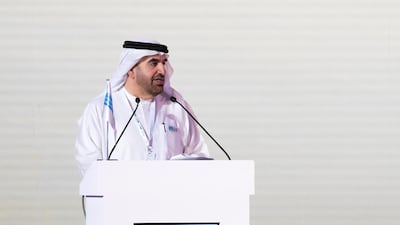UN officials have urged the countries in the Arab world to show stronger commitment to support female literacy across the region.
Speaking at the Literacy Challenge Forum in Dubai, UN experts said countries needed to come together and collaborate further to solve the problem of illiteracy.
While illiteracy among men in the Arab world is estimated at 14.6 per cent, it affects 26 per cent for women.
"Still women lag behind men in education and although there have been improvements, it’s not enough," said Dena Assaf, the UN's resident co-ordinator for the UAE.
"While there has been progress, gender equality remains elusive.
"Awareness is needed. There is a variety of issues, including awareness and the importance of educating both boys and girls regardless of income level.”
Dr Assaf said the situation was even more challenging in countries affected by political crisis.
"If people are living in unsafe communities, this has an impact on education. If people are unhealthy, this has an impact on education," she said.
"Even for poor communities, we need to stress more on the education of girls because this uplifts the whole community.
"One of the things that is proven is that when women get education, communities improve overall."
UN Women, an organisation that works for the empowerment of women, said more than two-thirds of the 796 million illiterate people in the world were women.
Khaled Shafi, the director of the UN Development Programme's regional hub for the Arab states, said the gender gap was not limited to education.
"We firmly believe that if we want to achieve the 2030 agenda [for sustainable development goals] in the Arab region we have to tackle this gender gap in all areas," he said.
"We believe nations cannot achieve the sustainable development goals without education as huge potential of the people is not utilised."
He said governments in the Arab world had the responsibility to make sure women were offered opportunities in education.
Experts said various reasons held back women from receiving a formal education.
"Some of the reasons are cultural, some are economical," said Mr Shafi.
"Families prefer to educate boys. There are a number of reasons that have to be tackled but this requires collaboration from different organisations, governments, civil society, academia and international organisations."
He said regional crises were the biggest obstacles in eradicating illiteracy.
Jamal bin Huwaireb, the chief executive of the Mohammed Bin Rashid Al Maktoum Knowledge Foundation, also said regional tension led to 13 million children being left out of school.
He said the forum, organised by the foundation, looked for solutions to the problem of illiteracy in the Arab world.
"Illiteracy is an obstacle in a country’s progress towards sustainable development and the well-being of humanity. We have to collaborate to eradicate illiteracy," he said.
"This problem has been vicious because of the instability in the area and requires in-depth collaboration between countries."
He said collaboration would help because educational experiences that were beneficial in one nation could be replicated elsewhere.
The UAE can be a model for other countries in the region as educated women outnumber literate males.
The Emirates has one of the world’s highest female literacy rates, at 95.8 per cent, and 70 per cent of the country’s university graduates are women.
More than 95 per cent of girls who graduate from high school pursue tertiary education and 56 per cent of the UAE’s science, technology, engineering and maths graduates at government universities are women.


